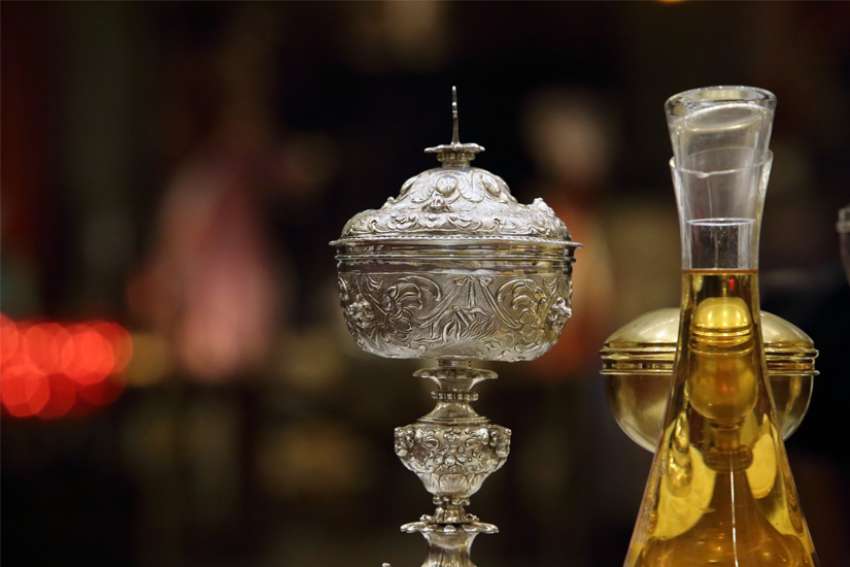This outcome allows the Catholic Church to legally restock its wine supplies after a long hiatus that culminated in April with police seizures of wine from various Mass suppliers.
For many years, altar wine bought in Quebec was produced in California, but had to be imported through Ontario or New Brunswick since the Société des alcools du Québec -- the state-owned monopoly -- would not issue permits that would have allowed a direct importation and local reselling.
According to the church, not just any wine is suitable for sacramental purposes. Wines used must be natural, entirely from grapes, not corrupted and contain no foreign substances.
Analysis reports from the SAQ laboratory were sent April 29 to the chancery of the Archdiocese of Montreal. These analyses, signed by a chemist and dated the previous day, listed several characteristics -- including the percentage of sugar and the quantity of sulfites -- of six readily available wines that could be used for Mass.
On May 3, Father Francesco Giordano, chancellor of the Montreal Archdiocese, responded to the SAQ that the wines met the standards for use in Mass. On May 11, taking note of a new analysis by the SAQ, the chancery authorized a seventh wine.
"This list may be adjusted from time to time," explained Msgr. Pierre Murray, secretary-general of the Quebec bishops' assembly.
Parishes and other organizations that need wine for sacramental purposes can receive a 17% discount on the listed price from the SAQ.
Msgr. Murray added that in dealing with the SAQ, the Quebec church realized that almost half of the wines available from the state-owned corporation could probably be suitable for Mass.
"It's rare that there's any added alcohol or sugar. As for sulfites, 95% of the wines have a quantity below the ecclesiastical criteria," said Msgr. Murray.
Alain Denis, general manager at Bertrand, Foucher, Bélanger Inc., one of the companies where police seized the California altar wines April 9, confirmed that nothing has moved on his case. On that day, police in various Quebec cities seized thousands of bottles of wines imported through other Canadian provinces, prompting a shortage of altar wine for the church.
"I was not notified before or after the seizure. We're waiting," he said.
It was the media who informed him that altar wines can now be purchased at the SAQ. Though pleased for his customers, he said that this does not solve the issue of permits that some suppliers had requested for years.
"There was a status quo that was good for everyone," he said. "Before we got to the point of a seizure, I would have liked someone to come to us and explain why the status quo -- which was obviously working for everyone -- was suddenly no longer appropriate."
If nothing else, the situation gave him a chance to see how much support his business can count on from his customers.
"I've never had so many sympathetic calls and supportive people. I've been doing this for 30 years. The customers know me, they know my kids. They know we're not criminals. People don't understand why this happened," he explained.

